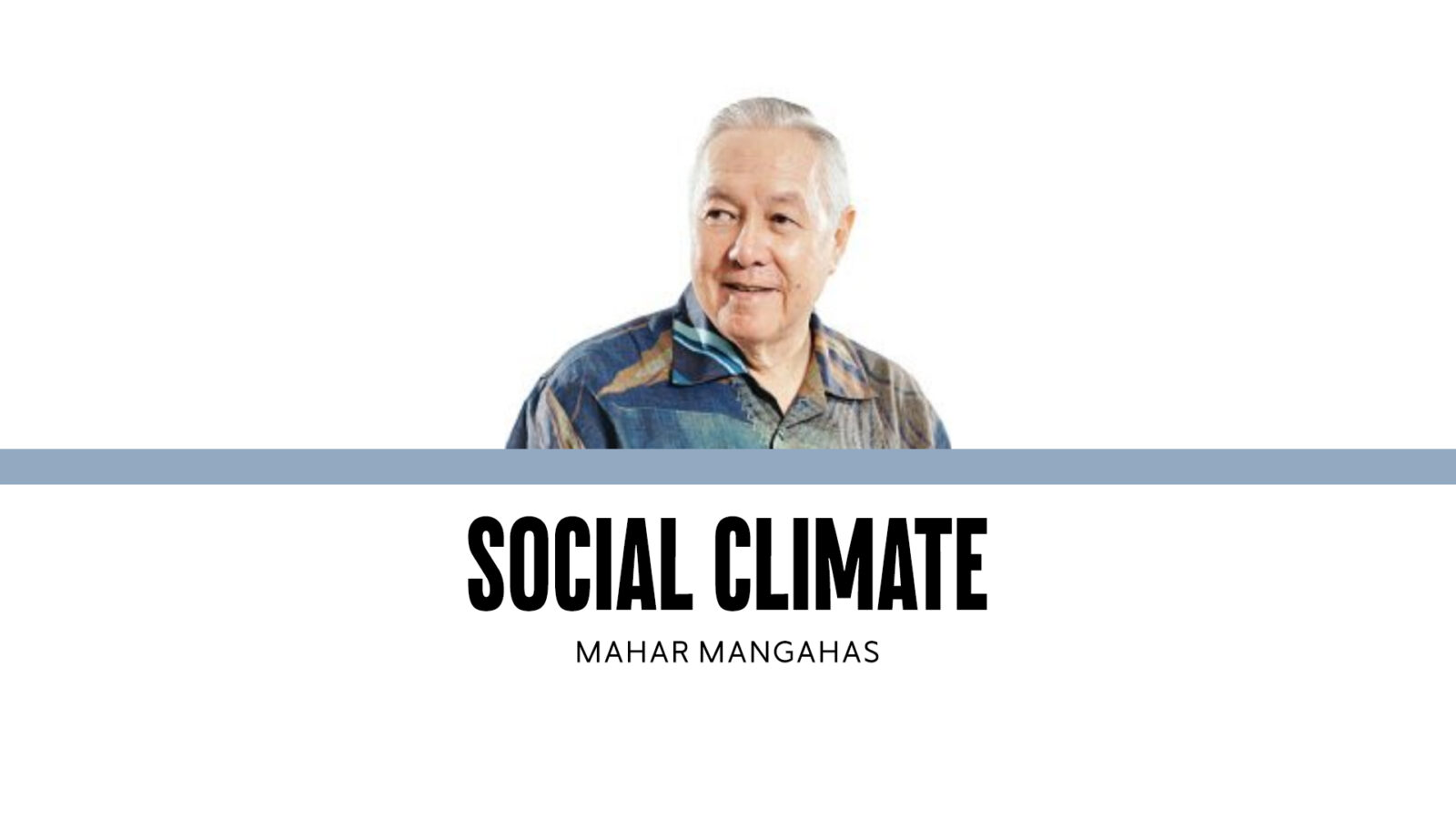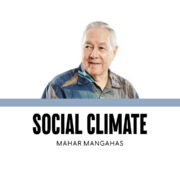Numbers about democracy

Although Social Weather Stations (SWS) was founded to help restore democracy, and although I’ve always held that anything can be measured – not that the work would be easy, or that it would be widely accepted — it’s only now that I’m conscious of not having tried to measure the working of our democracy itself. Now I think we should work towards it, and thereby get there in due time.
As of now, I am certain, based on recall of our surveys, that we Filipinos strongly aspire for democracy. Firstly, we definitely – at least two out of every three of us – disapprove of: 1. legislation by presidential decree, and 2. detention by presidential order. What we don’t like matters more.
We got our legislation back in order in 1986-87, after the Edsa Revolution and the new Constitution. However, there still are prisoners who are arguably political – witness Sen. Leila de Lima who suffered nearly seven years in jail before being allowed bail. Plus, there are so many Filipino desaparecidos; they deserve remembering on August 30, the International Day of the Disappeared.
Periodically, SWS polls as to whether: (a) democracy is always the best form of government, or (b) authoritarianism is sometimes better, or (c) the form of government doesn’t matter to persons like the respondent. This is a standard item in the world’s survey barometers; it divides the people into committed democrats, conditional authoritarians, and the indifferent. The result has been a great dominance, though not always a majority, of democrats; I don’t remember now if the authoritarians are always the bottom group.
We regularly survey public satisfaction with the President, Vice-President, Speaker of the House, Senate President, and Chief Justice every quarter. Their honeymoon periods are clear to see; usually they finish up in the net positive range, but not always. The effects on the public of the charges against them during impeachment have been quite negative, as would be expected. At present, the people are anxious for the Vice-President to answer the charges raised against her by the lower House. If the Senate and/or the Supreme Court get in the way, there will surely be serious consequences for certain personalities and institutions.
We put out a quarterly report card of the performance of the administration on a dozen or more subjects, and most subjects get satisfactory grades from the public. Protecting and enhancing democracy is not among the subjects that are graded; probably it’s time to start doing so.
There is a Democracy Index (DI), in which the Philippines is classified as a “flawed democracy.” The DI is made by the United Kingdom-based private firm the Economist Group, which publishes the newspaper The Economist. It was first published in 2006, and became annual in 2010. The DI is a zero-to-ten score, based on the judgements of the Economist’s network of experts on a number of facets of democracy in their special country or countries. These (anonymous) experts are surely highly educated, politically sophisticated persons, who should know what the Economist’s readership needs to know.
The DI classifies countries as “full democracies” for scores of 8.00 to 9.99, “flawed democracies” for scores of 6.00 to 7.99, “hybrid regimes” for scores of 4.00 to 5.99. and “authoritarian regimes” for scores of 3.99 or less. Democracy Index 2024, released in early 2025, subtitled “What’s wrong with representative democracy?” regards only 71 countries as democracies, either full or flawed, and labels 96 countries as regimes, either hybrid or authoritarian.
Of the 167 countries rated, Norway (9.81) is first, and Afghanistan (0.25) is last. Only two Asian countries are full democracies, namely Taiwan at 8.78, and Japan at 8.48. The United States (7.85) is merely a flawed democracy, like we are.
In Asia, the higher-rung flawed democracies, scoring 7+, are South Korea (7.75), India (7.29), Malaysia (7.11), and Timor-Leste (7.03). The lower-rung ones, scoring 6+, are the Philippines (6.63), Indonesia (6.44), Thailand (6.27) and Singapore (6.18).
Why do we rank above Singapore, which is supposedly superior to us in all things? Well, a country score is built up from its scores in five categories, weighted equally. Here are the scores per category of the Philippines (Ph) and Singapore (Sg): 1. Electoral process and pluralism, Ph 8.75, Sg 5.33; 2. Functioning of government, Ph 4.64, Sg 7.14; 3. Political participation, Ph 8.33, Sg 4.44; 4. Political culture, Ph 4.38, Sg 7.50; and 5. Civil liberties, Ph 7.06, Sg 6.47. The Philippines was scored superior to Singapore in the categories of elections, participation and liberties, and inferior to it in the categories of government and culture; its scoring advantage in three respects outweighed its disadvantage in two respects .
Our other Southeast Asian neighbors are all considered authoritarian (and none are in the category of hybrid): Cambodia (2.94), Vietnam (2.62), Laos (1.71), and Myanmar (0.96).
Incidentally, and expectedly, China (2.11) and Russia (2.03) are both authoritarian.
But personally, I prefer indicators capable of showing change over time over those comparing countries, such as the Miss Universe statistics. Envying and being envied should not matter too much in our lives.
Dr Mahar Mangahas is a multi-awarded scholar for his pioneering work in public opinion research in the Philippines and in South East Asia. He founded the now familiar entity, “Social Weather Stations” (SWS) which has been doing public opinion research since 1985 and which has become increasingly influential, nay indispensable, in the conduct of Philippine political life and policy. SWS has been serving the country and policymakers as an independent and timely source of pertinent and credible data on Philippine economic, social and political landscape.





















